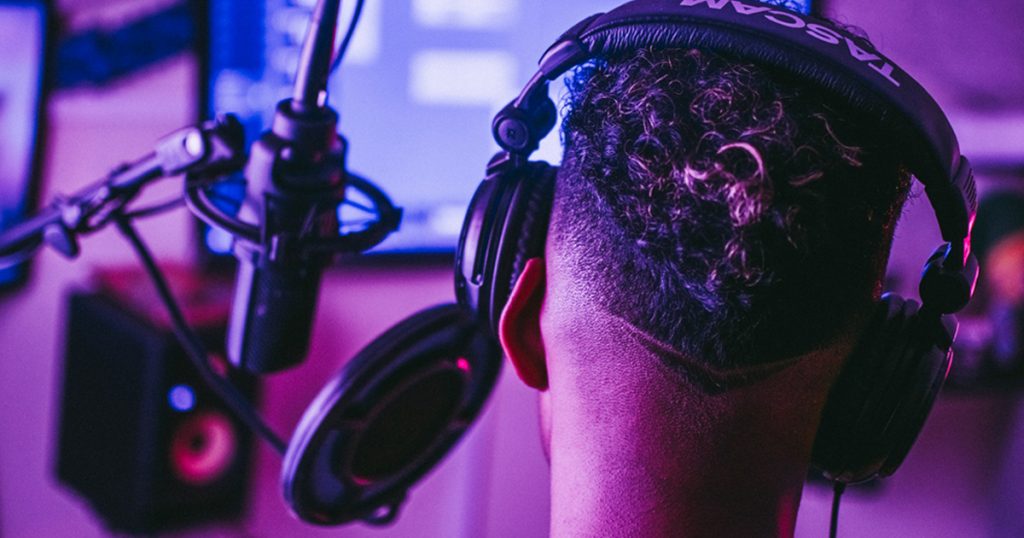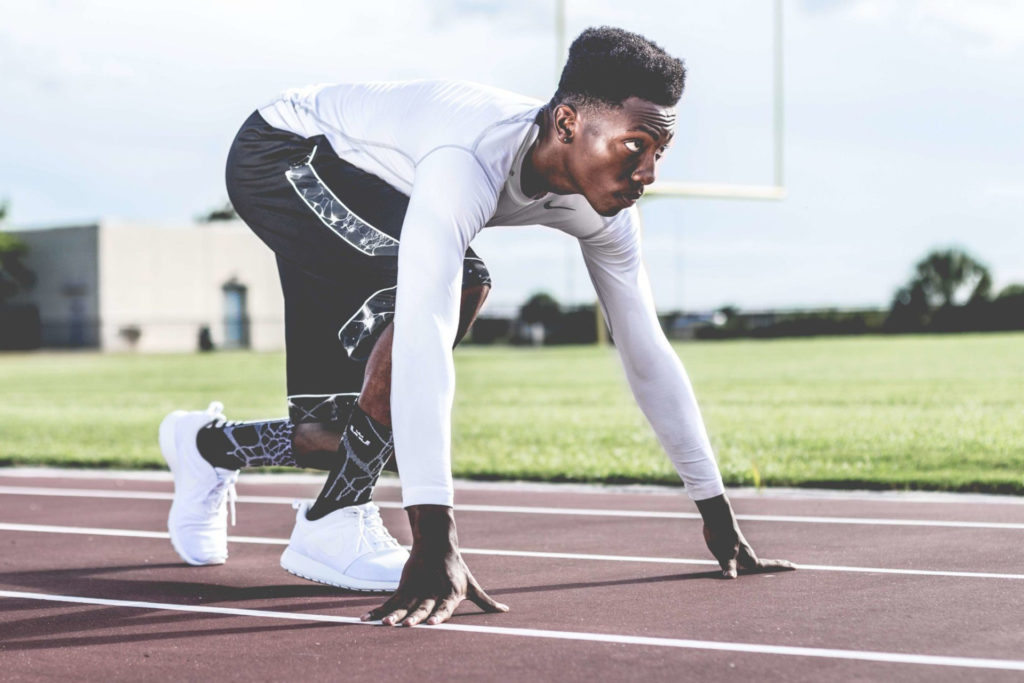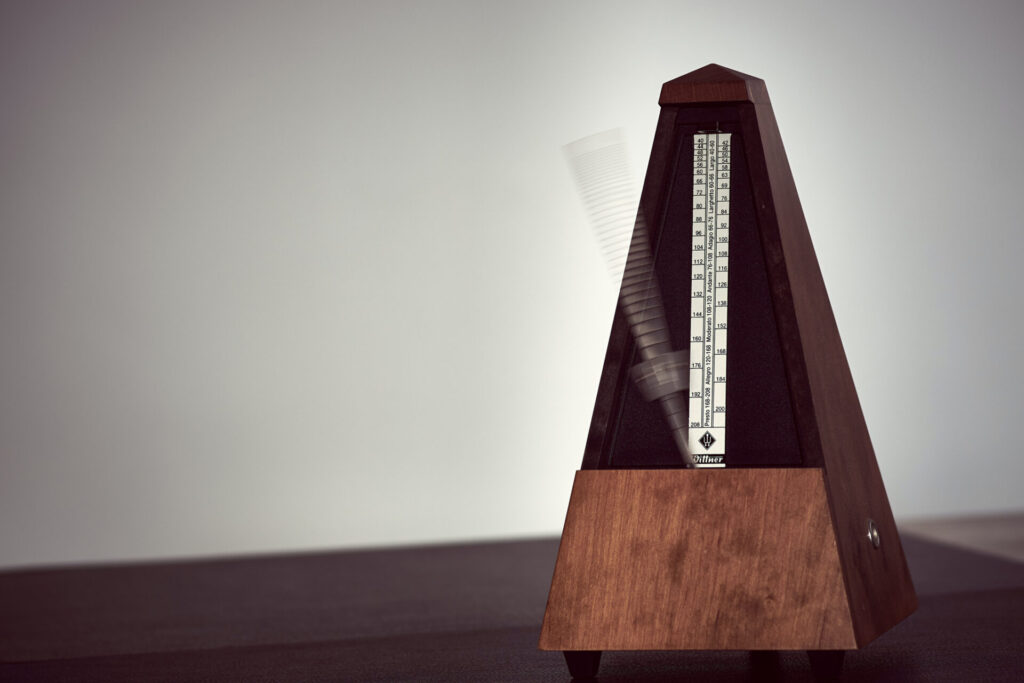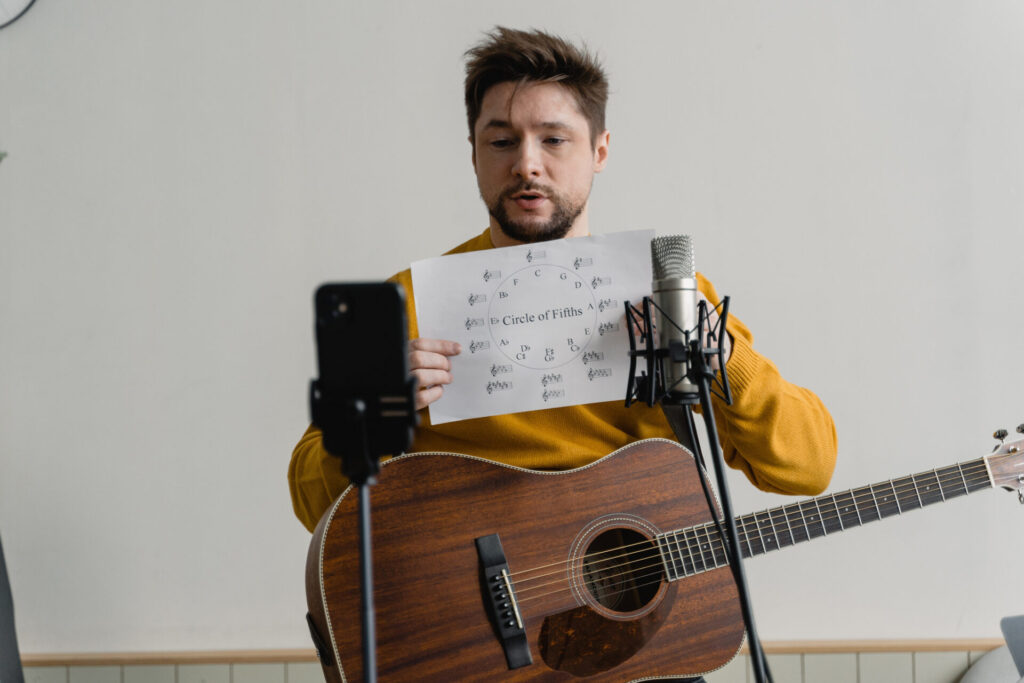+ Combine theory, improvisation, and jazzy hip-hop, and improve your piano chops with Grammy-winner Kiefer in Kiefer: Keys, Chords, & Beats.
When I was in graduate school, my next door neighbor was a well-known concert artist. Occasionally, I’d hear them practicing through the wall. It was interesting and educational to listen to how they practiced — what they spent time on, how they approached trouble spots, etc.
Because at the time, I thought my problem was that I didn’t practice enough. And while that was part of it, I’d also never heard of “deliberate practice.” I had no idea what productive practice looked like. And the notion that practicing effectively is a skill in and of itself was completely revelatory.
So how exactly do elite and intermediate players’ practice approaches differ? Are experts able to perform at a higher level simply because they’ve put more time into honing their craft? Or if time is kept constant, is there something qualitatively different about the way experts practice, that results in greater learning from day to day?
How Do Experts Practice?
A team of researchers in the UK set up a study (Coughlan et al., 2013) to learn more about how top athletes practice and improve their skills relative to less-skilled athletes. They took 45 elite and intermediate-level Gaelic football players, and divided them into three groups.
- The expert group consisted of 15 elite-level footballers (average age = 22.1; 15 years of playing experience).
- The expert-control group also consisted of 15 elite-level footballers (average age = 22.4; 15.7 years of playing experience).
- And the intermediate group consisted of 15 intermediate-level footballers (average age = 19.7; 14.7 years of playing experience).
A Kicking Challenge
The study began with a test of the athletes’ skill in a kicking challenge (the “pre-test”). A set of goalposts were set up on the wall of a gym, with certain zones designated for points. The center area was worth 3 points, the zones on either side of center were 2 points, and the zones further out towards the sides were 1 point.

Each athlete had 20 kick attempts to see how many points they could score; 10 kicks from the ground (like a penalty kick in soccer) and 10 from their hands (like punting a football). Then the research included the following phases:
- Four Practice Sessions: For the next four weeks, the expert and intermediate groups returned to the gym once per week to spend 15 minutes practicing their kicking, to see if they could improve on their initial score (the expert-control group didn’t get any practice time, and simply did the pre-test, post-test, and retention test).
- Post-Test: After four weeks of practice, all three groups were tested again on the same task.
- Retention Test — Then, to test the permanence of their newly honed kicking skills, everyone was asked to come back for a final “retention” test 6 weeks after the post-test.
+ Read more on Flypaper: “Three Ways to Tell You’re Getting Better.”
What Differences Did They Find?
In addition to measuring kick accuracy, the researchers filmed the practice sessions, had the athletes talk out loud to narrate their inner dialogue for a recording device (so the researchers could get some insight into what the athletes were thinking about or focusing on as they practiced), and also asked them to complete questionnaires designed to measure how physically effortful their practice was, how mentally effortful practice felt, and how enjoyable practice was.
As you can imagine, there were some clear differences between how the experts approached practice, and how the intermediate athletes utilized their time. Here are five of the most intriguing findings:
+ Learn production, composition, songwriting, theory, arranging, mixing, and more; whenever you want and wherever you are. Subscribe for full access!

1. Practicing led to improved performance.
The experts who were allowed to practice, improved their scores from the first test (16.7) to the second test (19.8), and maintained their improvement even after 6 weeks of not practicing (19.5). The experts who weren’t given any practice time, didn’t show any improvement over the three tests.
Ok, duh, right? This is not especially mind-blowing, but don’t worry, it gets better.
2. Experts worked on their weaker areas, while intermediate players worked on their stronger skill.
The experts spent a greater percentage of their time working on their weaker kick (66% of the time), compared to the intermediate athletes who devoted only 27% of their time to improving their weaker kick. Which sounds exactly like what Margo Drakos described in her podcast episode as being essential to the effectiveness and efficiency of her practice.
Not surprisingly, the experts demonstrated significant improvement on their weaker kick from the pre-test to the post-test (improving from 14.4 points to 19.9 points). Their improvement was also more permanent, as their scores remained stable six weeks later on the retention test (19.4 points at retention test).
Conversely, while the intermediate players did make significant improvements to their stronger kick from pre-test to post-test (8 points to 14.7 points), their improvement was less stable, as they regressed on the retention test (12.7). And more importantly perhaps, their weaker kick did not improve at all.
3. Experts put in fewer repetitions, but expended more effort and energy on each one.
Both expert and intermediate footballers spent the same total amount of time practicing, but experts logged fewer practice attempts than the intermediate group (43.9 vs 56.4 practice attempts). However, results from the effort and enjoyment assessments suggest that the elite performers expended more effort on each practice attempt.
Specifically, the experts rated their practice sessions as being less enjoyable than the intermediate players (57.7% for the experts vs. 75.8% for the intermediates, where a rating of 65-70% equals riding on an exercise bike at a comfortable pace for 20 minutes).
The experts also rated their practice as requiring more mental effort than the intermediate players (57.9% vs. 30.7%, where higher scores = more effort).
The experts rated their practice as requiring more physical effort as well (58.8% vs. 46.8%, where higher scores = more effort).
This is likely due to the experts and intermediate players’ focus on weaker vs. stronger skills. The more repetitions the experts did of their weaker kick, the less enjoyable they rated their practice time to be. And the more repetitions the intermediate players did of their stronger kick, the easier and less effortful they found their practice to be.
4. Experts did more planning before each practice attempt.
Based on the voice recordings of their spoken-aloud thoughts during practice, the researchers found that experts did more thinking and planning before each practice attempt.
On average, the experts made almost twice as many statements per attempt than their intermediate counterparts (3.3 statements vs 1.7 statements). In particular, they made more “monitoring and planning” statements before each kick. In other words, they seemed to be able to better utilize feedback from the previous kick and form a clearer plan for what they were going to do in the subsequent kick.
5. Experts did more random practice.
Experts spent less time engaged in a “blocked” style of practice — spending 17% of their practice sessions in a blocked format, as compared with 22% for the intermediate players.
The expert footballers also spent more time engaged in “random” practice — with 26% of their practice being considered random, compared with the intermediates who at 3%, did almost none of this kind of practice. (And if you’re wondering what the difference is between blocked and random practice, everything you need to know to get started is here and here.)
+ Read more on Flypaper: “How to Design an Effective Practice Program (Video).”
Three Outliers
Interestingly, there were three intermediate players who practiced more like the experts, and less like their intermediate-level counterparts.
Like the elite-level athletes, they spent more time working on their weaker kick (51% of practice attempts vs. 22% of practice attempts for their intermediate peers).
Also like the experts, they found working on their weaknesses to be less inherently enjoyable, and more effortful, with ratings that were much closer to the experts’ ratings than the other intermediate athletes in their group (enjoyment = 56%, 58%, 71% vs. 75.8% for their peers; mental effort = 60%, 65%, 45% vs. 30.7% for their peers; physical effort = 63%, 65%, 50% vs. 46.8% for their peers).
But it was worth it!
They demonstrated significantly greater improvements on their weaker kick than the other intermediate players — improving their scores by an average of 5.7 points vs. .8 points for the others at their level. And if you’re wondering if it meant sacrificing gains on their stronger kick, the answer is no. They improved performance on their stronger kick as well — by an average of 6 points (vs. 7.7 points for their peers).
Key Takeaway
We all have those days when things are easy and everything “just works” in the practice room. And when it’s not one of those days, it’s easy to think that we’re garbage, or wonder what’s wrong with us.
But when it comes to learning more effectively and evolving our skill, maybe we’ve got this all backwards. Perhaps it is actually these difficult days — the moments when we deliberately focus on the things that we are worst at, and struggle to improve the areas that don’t come easily to us — that we are actually learning and improving the most!
Don’t stop here!
Continue learning with hundreds of lessons on songwriting, mixing, recording and production, composing, beat making, and more on Soundfly, with artist-led courses by Kimbra, Com Truise, Jlin, Kiefer, and the new Ryan Lott: Designing Sample-Based Instruments.
—
Performance psychologist and Juilliard alumnus & faculty member Noa Kageyama teaches musicians how to beat performance anxiety and play their best under pressure through live classes, coachings, and an online home-study course. Based in NYC, he is married to a terrific pianist, has two hilarious kids, and is a wee bit obsessed with technology and all things Apple.




